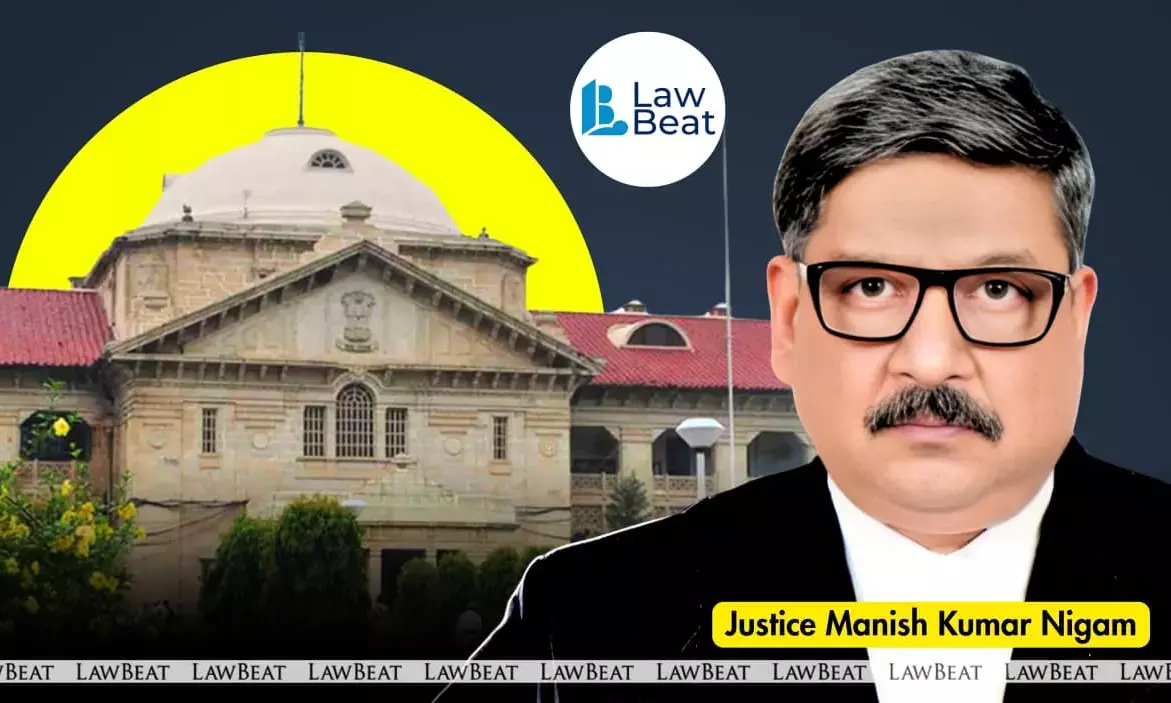Buyers With Only an Agreement to Sell Can’t Claim Property Rights: Allahabad HC

Allahabad High Court says that an agreement to sell does not create ownership
The Allahabad High Court has held that persons holding only an agreement to sell in their favour cannot claim any ownership rights or be added as parties in a pending partition suit, setting aside a trial court’s order that had allowed such impleadment.
The bench of Justice Manish Kumar Nigam, while allowing a civil revision filed by one Deependra Chauhan, quashed the order passed on August 29, 2023, by the Civil Judge (Senior Division), Gautam Buddh Nagar, which had permitted two individuals, respondents 4 and 5, to be impleaded in a family property dispute on the strength of an agreement to sell executed by Chauhan’s mother, Phool Kumari Chauhan.
The dispute concerned a residential property in Sector-39, NOIDA, measuring 163 square metres. The property was originally owned jointly by Deependra’s father, the late B.S. Chauhan, and mother, Phool Kumari. After the father’s death, Phool Kumari’s name was mutated in NOIDA Authority records with the family’s consent. However, Deependra later filed a suit in 2020 seeking partition of the property and an injunction restraining his relatives from alienating or disturbing his possession.
During the suit’s pendency, Phool Kumari executed an agreement to sell the property in July 2023 in favour of two outsiders, respondents 4 and 5. They subsequently sought to be added as parties to the case, citing their contractual interest in the property. Deependra objected, contending that his mother was only a co-owner and had no authority to sell the entire property. He also pointed out that the NOIDA Authority had rejected her request for permission to sell the property on June 14, 2023.
The trial court, however, allowed their application under Order I Rule 10(2) CPC, prompting Deependra to move the High Court. His counsel argued that the agreement to sell, at best, conferred only a personal right to seek specific performance and not any legal interest in the property. They also cited Section 52 of the Transfer of Property Act, which prohibits alienation of property during pending litigation.
Upholding this argument, the High Court held that “an agreement to sell does not create any interest or charge upon the property. It only gives a right to obtain another document in the form of a sale deed.”
Court relied on judgments from the Supreme Court, including State of U.P. v. District Judge (1997), Rambhau Namdeo Gajre v. Narayan Bapuji Dhotra (2004), and Rambaran Prosad v. Ram Mohit Hazra (1967), to reaffirm that ownership transfers only through a registered sale deed.
Justice Nigam also referred to the doctrine of lis pendens under Section 52 of the Act, observing that alienations during litigation cannot affect the rights of other parties without the court’s permission. Court cited Bibi Zubaida Khatoon v. Nabi Hassan Saheb (2004) to note that transferees pendente lite are not automatically entitled to join or contest ongoing suits.
“The proposed vendees in the agreement to sell have no right in law or equity over the property and are neither necessary nor proper parties to the suit,” the Court held, concluding that the trial court had exercised its jurisdiction with material irregularity.
Allowing the revision, the High Court set aside the trial court’s order and directed that no costs be imposed.
Case Title: Deependra Chauhan vs. Phool Kumari Chauhan and 4 others
Judgment Date: November 13, 2025
Bench: Justice Manish Kumar Nigam
